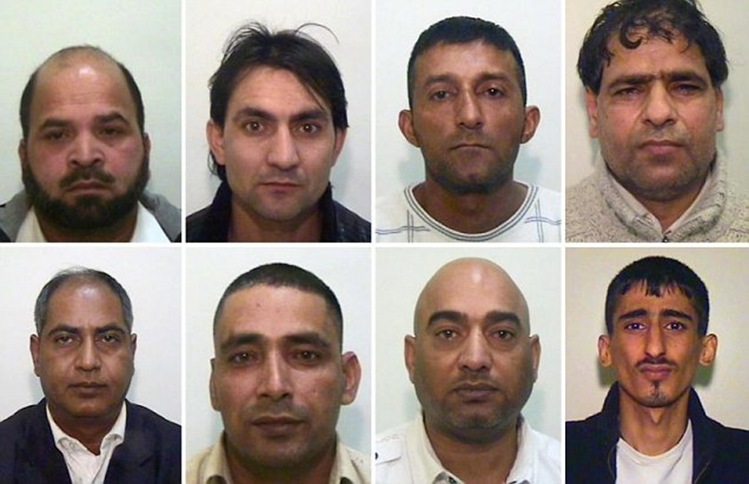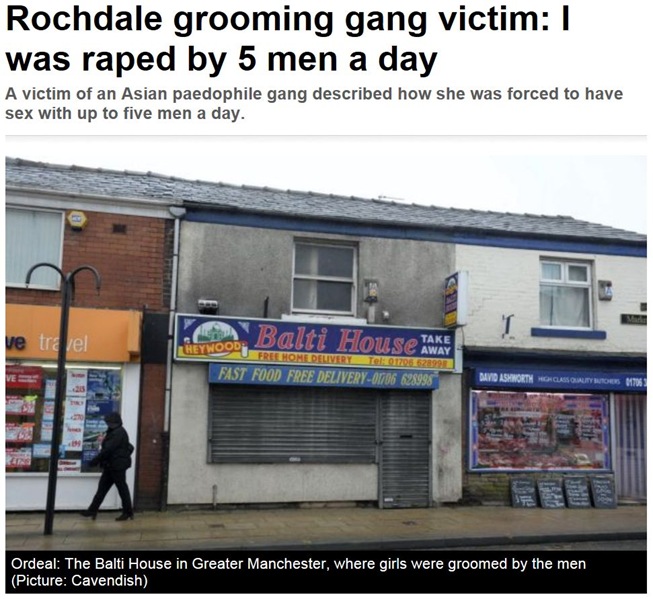BBC
December 21, 2013

There was a “shocking” inability to protect seven vulnerable girls from sexual exploitation, a report into the Rochdale grooming case has said.
A serious case review by the Rochdale Safeguarding Children Board highlighted failures by 17 agencies who were meant to protect the children.
Police and social workers failed the girls who were “passed around for sex” by a gang of men, it said.
The review recommended a “speedy resolution” to leadership failures.
“The report paints a shocking picture of the inability of these agencies to protect these young people successfully,” said Jane Booth, chair of the safeguarding board.
The appalling failures set out in this review leads to some difficult questions about how children in England are protected.
Something went fundamentally wrong, it seems, with how social workers were trained and managed in the early part of the last decade. Time and again, the failure to put the child at the centre of assessments is highlighted by serious case reviews. In Rochdale, such a basic requirement as actually speaking to the girl wasn’t even done.
And do the police take child protection seriously? In Rochdale, police failed to turn up to dozens of meetings aimed at protecting one girl. Similar failings emerged earlier this year involving West Midlands Police.
All agencies in Rochdale are highlighting today that their practices have improved. But given the same failures keep happening across England, the question is whether a fundamental shift in child protection attitudes has taken place across the country.
The report came on the same day five men were jailed for grooming a teenage girl. The investigation into the sexual abuse of the girl had been reopened following the exposure of police failings.
The serious case review looked at six girls who suffered sexual exploitation in Heywood, Rochdale between 2007 and 2010.
A second serious case review looked at a separate case involving a seventh girl.
Nine men from Rochdale and Oldham were sentenced for up to 19 years in prison in May 2012 after being convicted of offences including rape.
Speaking to BBC Five Live, Sir Peter Fahy, chief constable of Greater Manchester, denied his officers had failed to investigate allegations of rape made by underage girls before a decision was taken not to prosecute in 2008.
“We have to remember that in most of those cases, the girls themselves did not regard themselves has victims and were not willing to make complaints and that is still the situation now,” he said.
“We have got a number of girls in Rochdale that we believe are being abused and many of them will not talk to us and, even if they did, will not tell us about what is happening and certainly don’t want to make a complaint because that means they go into the criminal justice system.”
Five of the girls had “clearly” needed help and intervention by safeguarding agencies before the abuse began, the report said.

Failures highlighted include:
- Greater Manchester Police (GMP) – Failure to recognise child sexual exploitation in the early stages
- Rochdale Social Services – Lack of organisational priority over child sexual exploitation, an unstable duty and assessment team and a “chaotic” duty system
- Health services – GPs had explicit information that some of the girls were at risk “that could have helped them identify the possibility of sexual exploitation at earlier points”
- Crown Prosecution Service (CPS) – Recognition of child sexual exploitation in the early years “was very poor”, resulting in missed prosecution opportunities in 2008
Rochdale MP Simon Danczuk (Labour) said agencies had actively ignored the abuse and that “social services believed these girls were making lifestyle choices”.
